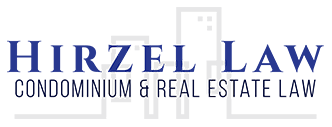Michigan condominium associations and co-owners should be aware that the boundaries of condominium units are not necessarily fixed and may be changed provided that certain requirements are satisfied under the Michigan Condominium Act, MCL 559.101, et seq. By way of example, a single co-owner may purchase adjoining condominium units in a traditional attached condominium and desires to relocate the boundaries between the two condominium units. In a site condominium, which is composed of separate single-family homes, the adjoining unit owners may want to alter boundaries for construction and/or landscaping purposes. However, condominium associations should be aware that an amendment to a master deed that alters the boundaries between the condominium units is not governed by MCL 559.190 and MCL 559.190a and that the traditional requirements of obtaining 2/3 co-owner and mortgagee approval are not necessary. Rather, as will be set forth below, MCL 559.148 provides a special procedure for amending a master deed to relocate boundaries between adjoining condominium units.
Does the master deed permit the condominium unit boundaries to be relocated?
First, the boundaries between condominium units cannot be relocated unless the master deed or condominium bylaws expressly allow for the reallocation of boundaries between adjoining condominium units. Specifically, MCL 559.148(1) provides as follows:
If the condominium documents expressly permit the relocation of boundaries between adjoining condominium units, then the boundaries between the condominium units may be relocated in accordance with this section and any restrictions not otherwise unlawful which the condominium documents may specify. The boundaries between adjoining condominium units shall not be relocated unless the condominium documents expressly permit it. A relocation of boundaries shall not occur without approval of an affected mortgagee.
Accordingly, if the master deed does not expressly permit condominium unit boundaries to be relocated, the master deed must first be amended under MCL 559.190, with 2/3 co-owner approval, to include a provision that expressly allows for the relocation of condominium unit boundaries. Once it is determined that the master deed expressly permits the relocation of adjoining condominium unit boundaries, the condominium association must then determine whether a mortgage exists on either of the units. If any of the units have a mortgage, the mortgagee must approve the boundary relocation.
Who approves an amendment to the master deed to relocate unit boundaries?W
Unlike a traditional amendment to the condominium documents that requires 2/3 co-owner approval, an amendment to the master deed that relocates condominium unit boundaries is simply approved by the principal offer of the condominium association, which is typically the president. MCL 559.148(2) provides as follows:
If the co-owners of adjoining condominium units whose mutual boundaries may be relocated desire to relocate the boundaries, then the principal officer of the association of co-owners or other persons as the condominium documents may specify, shall, upon written application of the co-owners, forthwith prepare and execute an amendment to the master deed duly relocating the boundaries pursuant to the condominium documents and this act.
What should be contained in amendment to the master deed that relocates unit boundaries?
MCL 559.148(3) and (4) provide as follows with respect to the contents of an amendment to a Master Deed that relocates unit boundaries:
(3) An amendment to the master deed shall identify the condominium units involved and shall state that the boundaries between those condominium units are being relocated by agreement of the co-owners thereof, which amendment shall contain conveyancing between those co-owners. If the co-owners of the condominium units involved have specified in their written application a reasonable reallocation as between the condominium units involved of the aggregate undivided interest in the common elements appertaining to those condominium units, the amendment to the master deed shall reflect that reallocation.
(4) If the co-owners of the condominium units involved have specified in their written application a reasonable reallocation as between the condominium units involved of the aggregate number of votes in the association of co-owners allocated to those condominium units, an amendment to the bylaws shall reflect that reallocation and a proportionate reallocation of liability for expenses of administration and rights to receipts of administration as between those condominium units.
Accordingly, when preparing an amendment to a master deed, it should not only be executed by the president of the condominium association, but also by the co-owner of the unit that is conveying a portion of their condominium unit that will be attached to an adjoining unit. Similarly, if the voting rights of a unit are altered or if the obligation to pay assessments is changed, the amendment to the master deed should reflect these items as well.
Conclusion
Relocating boundaries between adjoining condominium units is a fairly simple process under the Michigan Condominium Act, MCL 559.101, et seq. However, given that this type of request is not frequently encountered by many condominium associations, board members should be aware that the requirements under MCL 559.148 differ from a traditional amendment under MCL 559.190.
Kevin Hirzel is the Managing Member of Hirzel Law, PLC and concentrates his practice on commercial litigation, community association law, condominium law, Fair Housing Act compliance, homeowners association and real estate law. Mr. Hirzel is a fellow in the College of Community Association Lawyers, a prestigious designation given to less than 175 attorneys in the country. He has been a Michigan Super Lawyer’s Rising Star in Real Estate Law from 2013-2019, an award given to only 2.5% of the attorneys in Michigan each year. Mr. Hirzel has been named a Leading Lawyer in Condominium & HOA law by Leading Lawyers Magazine in 2018 and 2019, an award given to less than 5% of the attorneys in Michigan each year. He represents community associations, condominium associations, cooperatives, homeowners associations, property owners and property managers throughout Michigan. He may be reached at (248) 478-1800 or kevin@hirzellaw.com.

